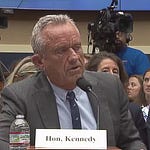The U.S. medical publishing system is a tool of corporate marketing, there is little resemblance of scientific inquiry. Top journals like The Lancet, the New England Journal of Medicine, and JAMA are no longer trusted sources of independent research. Former editors have admitted as much, the likes of Marcia Angell, who led the New England Journal of Medicine for two decades, and Richard Horton of The Lancet both said their journals now serve pharmaceutical interests, not science.
Pharmaceutical companies pay to publish studies that support their products. We end up with no neutral peer-reviewed findings at all, they just dish out commissioned results. The companies often spend $10,000 or more to get these articles accepted. Once published, they buy branded reprints directly from the journal. These reprints carry the official logos, which gives them the appearance of scientific legitimacy. Sales reps then use them in meetings with doctors, offering them as proof that a drug works. These reps are backed by the company, incentivised by sales, and suggestively promise more visits and perks if prescriptions increase. This cycle repeats itself, and that is how the system is built. The journals profit, the companies profit, and we the unfortunate public assume the science is sound.
During COVID-19, this system reached a peak. Papers that challenged the dominant narrative were routinely rejected or censored. Studies that showed concerns about lockdown policies, mRNA safety, natural immunity, or alternative treatments were blocked from publication. Even basic scientific debate was shut down. Editors sided with government agencies and pharmaceutical companies. Peer review became a filter to enforce policy, abandoning test for evidence. The result was a uniform narrative with no room for correction, even when early decisions turned out to be wrong.
In 2023, publisher Wiley retracted more than 11,000 papers after discovering widespread fraud inside its Hindawi division. The company said the peer-review process had been “compromised” and admitted there was systemic manipulation. Over 10,000 other papers were retracted across journals in the same year. Scientific publishing has turned into a pay-to-play operation where outcomes are written before the data is collected. Universities are caught in the same loop. Research funding depends on publishing in these journals, so academic departments tailor studies to fit the accepted narrative. Curricula are shaped to match funding priorities, not scientific curiosity. The result is an entire generation of researchers who know which questions not to ask.
In response, Secretary Kennedy has announced a policy shift. He said NIH researchers will stop publishing in the corrupted journals unless those journals reform. Instead, each NIH institute will set up its own in-house journal. These new platforms will publish research funded by the NIH directly. Kennedy’s plan is to restore credibility to medical science by separating it from industry control. If the NIH labels a researcher credible, then their work should stand on its own. This move will cut off a major source of revenue for the old journals, force them to change their practices, or lose relevance.
Kennedy also froze all U.S. funding to Gavi, the vaccine alliance group co-founded by Bill Gates. Gavi has received billions in U.S. taxpayer money since 2001. Kennedy accused the group of working with the World Health Organization during COVID to pressure social media platforms to censor critical views and silence public debate. He said Gavi has failed to measure the actual impact of its vaccine programs and operates as a public relations outfit for pharmaceutical companies. Until Gavi shows that it can act in the public interest, the U.S. will not fund it.
The system is broken at every level, the journals are compromised, and the peer review process is for sale. Universities shape research around funding, not discovery. Public health policy is built on ghostwritten studies that no one questions. Medical decisions are driven by industry marketing, not patient outcomes. Billions in public money support this system, and until now, no one in government has stopped it.
There is nothing radical about Kennedy’s plan, it’s a return to basic standards. Basic norms should be that a study that cannot stand on its own without corporate funding, should not guide national health policy. Medical journals that are willing to sell space and influence, should not be treated as scientific authorities. Public funds should not be used to promote commercial products, if that happens, the public has a right to demand transparency.
There is nothing to debate about a return to basic scientific enquiry, this is beyond politics or ideology. The public need to know the facts, money, and who controls the flow of information. The people paying for the system are the same people being misled by it, and this has to change. The first step is start with these journals, and ending the funding for groups that silence open debate is the second. There will have to be more that needs to clean Science, but this is a start. The last thing we need to hear is shrills going on about “trust the science” and “trust the experts”.
If you think my voice should be heard louder then PLEASE support by becoming a PAID SUBSCRIBER. I’m here for your raw, straight, and dedicated analyses. Your support is appreciated. Thank you.
buymeacoffee.com/ggtv












Share this post